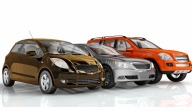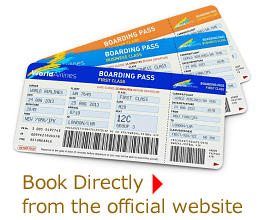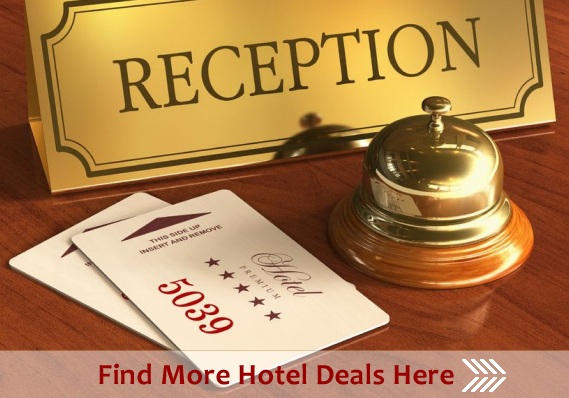Most Popular Hotel Deals in Hong Kong:
![]()
![]()
![]()
![]()
![]()
![]()
Hong Kong International Airport
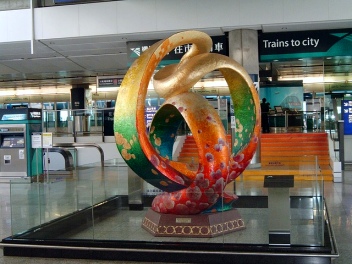 Hong Kong International Airport (IATA: HKG), also known as Chek Lap Kok 赤鱲角 (the name of the small island containing the airport), is located just north of Lantau Island and west of Hong Kong Island. Designed by Sir Norman Foster, the airport opened in July 1998 and has since been named “World’s Best Airport” by Skytrax 8 times.
Hong Kong International Airport (IATA: HKG), also known as Chek Lap Kok 赤鱲角 (the name of the small island containing the airport), is located just north of Lantau Island and west of Hong Kong Island. Designed by Sir Norman Foster, the airport opened in July 1998 and has since been named “World’s Best Airport” by Skytrax 8 times.There are many direct flights to Hong Kong from every continent in the world. Most major cities in Europe and North America are all served with at least one daily flight, and flights between Hong Kong and other major cities in Asia and Oceania are frequent. Cathay Pacific operates one of the longest air routes in the world, between Hong Kong and New York (JFK). Major carriers at the airport are Cathay Pacific, its subsidiary airline Dragonair (mostly operates routes within China as well as some routes to other parts of Asia), Hong Kong Airlines, and Hong Kong Express.
There are two terminals connected via an underground shuttle bus. Terminal 2 is a check-in only facility, all flights depart from Terminal 1. You can clear security at either terminal. There are more shopping opportunities before security at T2, but its shops close earlier. There are lots of shopping opportunities after security as well.
Services at Hong Kong International Airport are generally far better, or at least on par, with those at other major international airports. There is an efficient post office in the airport, providing boxes, wrapping material, scissors, and tape. Mailing items is sometimes cheaper and easier than paying airline baggage fees. The airport has free Wi-Fi. There is a manned left-luggage facility in the arrival hall, costing $140 per day per bag.
Shopping in Hong Kong
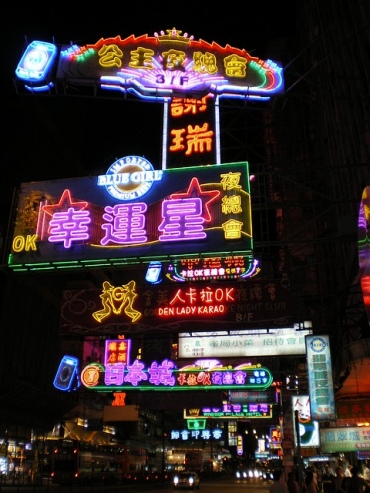 Fierce competition, no sales tax or VAT, and some wealthy consumers all add up to make Hong Kong an excellent destination for shopping. Choices are plentiful at competitive price. Lookout for watches, camping equipment, digital items and special cosmetics. It’s worth bearing in mind that many ground-level high street shops have to cover extortionate rent, which will probably offset the saving from lack of VAT. Much of the ideas of Hongkong being a shoppers paradise are out-dated, if you want cheap goods you won’t find them on the high street. This is largely down to the huge number of wealthy Chinese that come to Hongkong to buy genuine (luxury) goods, which are extremely expensive in China.
Fierce competition, no sales tax or VAT, and some wealthy consumers all add up to make Hong Kong an excellent destination for shopping. Choices are plentiful at competitive price. Lookout for watches, camping equipment, digital items and special cosmetics. It’s worth bearing in mind that many ground-level high street shops have to cover extortionate rent, which will probably offset the saving from lack of VAT. Much of the ideas of Hongkong being a shoppers paradise are out-dated, if you want cheap goods you won’t find them on the high street. This is largely down to the huge number of wealthy Chinese that come to Hongkong to buy genuine (luxury) goods, which are extremely expensive in China.Popular shopping items include consumer electronics, custom clothing, shoes, camping equipment, jewellery, expensive brand name goods, Chinese antiques, toys and Chinese herbs/medicine. There’s also a wide choice of Japanese, Korean, American and European clothing and cosmetics but price are generally higher than in their respective home countries.
Most shops in Hong Kong’s urban areas open at about 10:00AM until 22:00 or even midnight every day. High rents in Hong Kong, ranked second worldwide according to Forbes, make it no surprise that the best bargain shops could be located anywhere except the ground floor. Shops recommended by local people may even be up on the 20th floor in a building that won’t give you a hint that it’s a place for shopping.
Many shops will accept credit cards. In accepting credit cards, the merchant will look carefully at the signature rather than looking at picture ID. In addition, merchants will not accept credit cards with a different name that the person presenting it. All shops that accept credit cards and many that don’t, will also accept debit cards and ATM cards as payment. The term used for debit card payment is EPS, but many shops accept EPS for free and charge for use of the Visa/Mastercard (credit or debit) network.
Antiques and Arts- Head for Hollywood Road and Loscar Road in Central. Here you will find a long street of shops with a wide selection of products that look like antiques. Some items are very good fakes, so make sure you know what you are buying. Try Star House near the Star Ferry pier in Tsim Sha Tsui for more expensive items.
Books- Hong Kong houses a fair choice of English books, Japanese, French titles, and huge range of uncensored Chinese titles. Prices are usually higher than where they import but it is your last hope to look for your books before heading to China. Try Swindon Books on Lock Road in Tsim Sha Tsui and Page One in Times Square (Causeway Bay) and Festival Walk (Kowloon Tong). Dymocks, an Australian bookshops, has eleven stores, including in IFC and the Princes Building. For French books, visit Librairie Parentheses on Wellington Street in Central and Japanese books are sold in Sogo Shopping Mall in Causeway bay. The biggest local bookshop chain is the Commercial Press and usually have a cheaper but limited English titles. For looking for Chinese books, local people’s beloved bookshops are all along Sai Yeung Choi Street. Called Yee Lau Sue Den (Bookshop on second floor), they hide themselves in the upper floor of old buildings (look for signs containing the traditional character 書) and offer an unbeatable discount on all books.
Cameras- Reputable camera stores are located mainly in Central, Tsim Sha Tsui and Mongkok but tourist traps do exist, especially in Tsim Sha Tsui. The basic rule is to avoid all the shops with flashing neon signs along Nathan Road and look for a shop with plenty of local, non-tourist, customers. Only use recommended shops, as shops such as those on Nathan Road are likely to disappear on your next visit to Hong Kong. For easy shopping, get an underground train to Mongkok and head to Sai Yeung Choi Street, where you might find some of the best deals. The Mong Kok Computer Centre and Galaxy Mall (Sing Jai) are always packed with local people. Several camera shops like Man-Sing and Yau-Sing are known for their impolite staff but have a reputation for selling at fair prices. In the 1990s and early 2000s, most shops didn’t allow much bargaining, but this has changed since 2003 with the influx of tourists from mainland China. While it is hard to tell how much discount you should ask for, if a shop can give you more than 25-30% discount, local people tend to believe that it’s too good to be true, unless it’s a listed seasonal sale.
Computers- The base price of computer equipment in Hong Kong is similar to those in other parts of the world, but there are substantial savings to be hand from the lack of sales tax or VAT.
The Wanchai Computer Centre, Mongkok Computer Centre and Golden Computer Arcade on Sham Shui Po are all a few steps away from their corresponding MTR stations. Also electronic equipment is available at the large chain stores such as Broadway and Fortress which are located in the large malls. The major chain stores will accept credit cards, while smaller shops will often insist on cash or payment by ATM card.
Computer Games and Gaming Hardware- If you are interested in buying a new Playstation, Nindendo DS and the like, the Oriental Shopping Centre, 188 Wan Chai Road, is the place to go. Here you will definitely find a real bargain. Prices can be up to 50% cheaper than in your home country. Be careful to compare prices first. There are also a few game shops in the Wanchai Computer Centre. The back corners in the upper levels usually offer the best prices. You might even be lucky and find English speaking staff here. However, be careful to make sure that the region code of the hardware is compatible with your home country’s region code (Hong Kong’s region code is NTSC-J, different from mainland China) or buy region code free hardware (like the Nintendo DS lite but NOT the 3DS).Music and Film- HMV is a tourist-friendly store that sells a wide range of more expensive products. For real bargains you should find your way into the smaller shopping centres where you will find small independent retailers selling CDs and DVDs at very good prices. Some shops sell good quality second hand products. Try the Oriental Shopping Centre on Wanchai Road for a range of shops and a taste of shopping in a more down-market shopping centre. Alternatively, brave the warren of CD and DVD shops inside the Sino Centre on Nathan Road between Mong Kok and Yau Ma Tei MTR stations. Hong Kong has two independent music stores. White Noise Records in Causeway Bay and Harbour Records in TST. Hong Kong’s leading department store Lane Crawford has CD Bars in its IFC and Pacific Place stores and there’s a good CD bar at Saffron Cafe on the Peak.
Camping and sports- A good place to buy sportswear is close to Mong Kok MTR station. Try Fa Yuen Street with a lot of shops selling sports shoes. There are also many shops hidden anywhere except the ground floor for selling camping equipment. Prices are usually highly competitive.
Fashion - Tsim Sha Tsui on Kowloon and Causeway Bay on the island are the most popular shopping destinations, though you can find malls all over the territory. In addition to all the major international brands, there are also several local Hong Kong brands such as Giordano, Bossini, G2000, Joyce and Shanghai Tang. The International Finance Centre in Central has a good selection of haute coutre labels for the filthy rich, while for cheap knock-offs, Temple Street in Mong Kok is the obvious destination, though prices are not as cheap as they used to be and these days, most locals head across the border to Shenzhen for cheaper bargains. There is also Citygate Outlets, an extremely large factory outlet mall containing most of the major foreign and local brands located near Tung Chung MTR station on Lantau Island. Tourist going to Ladies Market or any markets nearby please be aware that there is basically no price tag on the items shown in the market. Most of the time, the price the merchant will quote you is double the price. Haggle with them and ask to reduce the price at least by 50%. In fact similar clothing items (lower price but fixed) can be found in brick and mortar shops nearby too(e.g Sai Yeung Choi street)
Tailoring - Hong Kong was once famous for offering first-rate fully bespoke shirts and suits at unbelievably low prices. It’s not quite the bargain it once was, but you can still get suits for perhaps 1/4 of the cost of similar quality in the west. The tailor shop commonly mentioned in travel guides and magazines is Sam’s Tailor, mainly because he is famous for selling to celebrities like Bill Clinton, but a tourist will not get the same level of quality or service (he has a separate fitting room on the second floor for VIPs). Expect to pay about 12,000 HKD for a suit from a first-class tailor who does the work in Hong Kong (e.g., Ascot Chang or A Man Hing Cheong) and expect to go in for at least three fittings before delivery of the suit. A tailor like New Super Fit Fashions (at the Tsim Sha Tsui Mansion) does excellent work for a much lower price, but produces the final product after only one fitting which leaves fewer opportunities to tweak the result.
Tea- Buying good chinese tea is like choosing a fine wine and there are many tea retailers that cater for the connoisseur who is prepared to pay high prices for some of China’s best brews. To sample and learn about Chinese tea you might like to find the Tea Museum which is in Hong Kong Park in Central. Marks & Spencer caters for homesick Brits by supplying traditional strong English tea bags at a reasonable price. Fook Ming Tong at the International Finance Centre mall carries high-end teas, ranging from about a hundred up to tens of thousands of Hong Kong dollars.
Watches and jewellery- Hong Kong people are avid watch buyers - how else can you show your wealth if you can’t own a car and your home is hidden at the top of a tower-block? You will find a wide range of jewellery and watches for sale in all major shopping areas. If you are targeting elegant looking jewellery or watches try Chow Tai Fook, which can be expensive. Prices vary and you should always shop around and try and bargain on prices. When you are in Tsim Sha Tsui you will probably be offered a “copy watch” for sale. The major luxury brands have their own shops that will ensure you are purchasing genuine items.
Dining in Hong Kong
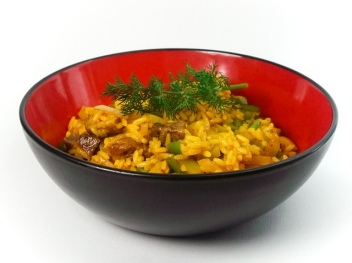 Cuisine plays an important part in many peoples’ lives in Hong Kong. Not only is it a showcase of Chinese cuisines with huge regional varieties, but there are also excellent Asian and Western choices. Although Western food is often adapted to local tastes, Hong Kong is a good place for homesick travellers who have had enough of Chinese food. The Michelin guide to Hong Kong is considered to be the benchmark of good restaurants. Open Rice also provides a great directory of local restaurants. This is a fairly safe way to find a few “hole in the wall” style restaurants or eating places, whilst still experiencing good, local food. According to Restaurant magazine, 4 of the best 100 restaurants in the world are in Hong Kong.
Cuisine plays an important part in many peoples’ lives in Hong Kong. Not only is it a showcase of Chinese cuisines with huge regional varieties, but there are also excellent Asian and Western choices. Although Western food is often adapted to local tastes, Hong Kong is a good place for homesick travellers who have had enough of Chinese food. The Michelin guide to Hong Kong is considered to be the benchmark of good restaurants. Open Rice also provides a great directory of local restaurants. This is a fairly safe way to find a few “hole in the wall” style restaurants or eating places, whilst still experiencing good, local food. According to Restaurant magazine, 4 of the best 100 restaurants in the world are in Hong Kong.You may meet some local people who haven’t cooked at home for a decade. Locals love to go out to eat since it is much more practical than socializing in crowded spaces at home. A long queue can be a local sport outside many good restaurants during peak hours. Normally, you need to register first, get a ticket and wait for empty seats. Reservations are usually only an option in upmarket restaurants.
Eating etiquette
Chinese food is generally eaten with chopsticks. However, restaurants serving western food usually provide a knife, fork and spoon. Do not stick your chopsticks vertically into a bowl of rice, as this is reminiscent of incense sticks burning at the temple and has connotations of wishing death on those around you. In addition, chopsticks should not be used to move bowls and plates or make any noise. Dishes in smaller eateries might not come with a serving spoon, although staff will usually provide one if you request.
A few Hong Kong customs to be aware of:
To thank the person who pours your tea Cantonese style, tap two or three fingers on the table. The legend suggests a story involving a Chinese emperor travelling incognito and his loyal subjects wanting to kowtow (bow) to him without blowing their cover — hence the “finger kowtow”.
If you want more tea in the pot, leave the lid open, and it will be refilled.
It is not unusual for customers to rinse their plates and utensils with hot tea before starting their meal, and a bowl is often provided for this very purpose. This is due to the fact that cheaper restaurants may often have washing residues on dishes or utensils.
Except for very expensive places, there is no real dress code in Hong Kong. You will often see people in suits and others in t-shirts in the same restaurant.
Hong Kong Festivals & Events
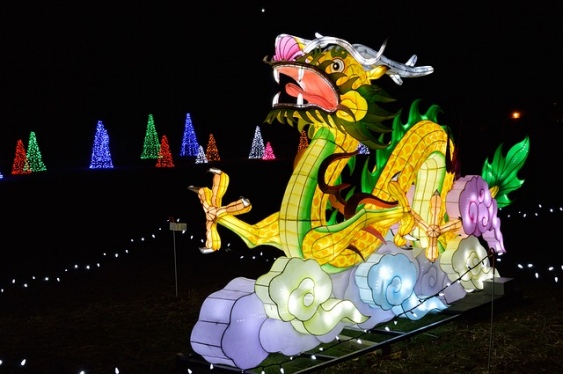
- Chinese (Lunar) New Year.
Although this may seem like an ideal time to go to Hong Kong, many shops and restaurants are closed during the first 3 days of the Chinese New Year, so visitors will not see Hong Kong at its best. However, unlike Christmas in Europe where you can hardly find shops open, department stores, supermarkets, and Western fast-food restaurants generally remain open, so you can still get food and daily products easily during the Lunar New Year period. The week or two leading up to the Chinese New Year as well as the period from the 3rd to the 15th day are good times to soak up the festive mood and listen to Chinese New Year songs being played in the shops. There are some celebratory events such as lion dances, fireworks, and parades. - Spring Lantern Festival.
If you go to Victoria Park in Causeway Bay, you will be able to experience this traditional Chinese festival. A number of beautiful lanterns can be found in the park at this time. - Ching Ming Festival
This festival in Spring is also known as grave sweeping day. To show respect to the deceased, family members go to the grave of their ancestors to sweep away leaves and remove weeds around the grave area. Paper offerings are also burned, such as fake money. - Birthday of Tin Hau.
Hong Kong’s maritime heritage ensures that Tin Hau, Goddess of the Sea and patron saint of fishermen, has a strong and loyal following here. On her birthday, locals flock to the more than 70 temples dedicated to her in Hong Kong to pray for safety, security, fine weather and full fishing nets during the coming year. So enduring is the reverence for Tin Hau in Hong Kong that this festival is even celebrated by many young people who are more likely to catch a fish in a Seafood Restaurant than on a trawler. - Birthday of the Buddha.
The Birthday of the Buddha (Siddhartha Gautama), the founder of Buddhism, also called the Buddha Bathing Festival, is one of the most spiritual and unique festivals celebrated in Hong Kong. According to legend, nine dragons sprayed water to bathe the baby Buddha at birth. To commemorate this, at Buddhist temples across the city, devotees gather to pay their respects to this revered deity by bathing statues of him in bowls of water. The ritual is believed to aid in the purification of one’s soul. One of the grandest ceremonies is held at the Po Lin Monastery on Lantau Island, home of the Big Buddha. - Cheung Chau Bun Festival.
This is takes place on the tiny island of Cheung Chau. In the past the festival has involved competitions with people climbing bun towers to snatch buns. After the unfortunate collapse of a bun tower in 1978, due to an
overload of people, the competition was abandoned. It was resumed again in 2005 with better safety measures. - Tuen Ng Festival, popularly known as Dragon Boat Festival.
This is a festival in memory of a national hero from the Spring and Autumn Period of Chinese history. Dragon boat races are typically held during this festival with boats that have shapes of a dragon. People celebrate
also by eating glutinous rice dumplings, usually with pork fillings, and drinking realgar wine. The Dragon Boat Festival takes place on the 5th day of the 5th month of the Chinese lunar month which is going to be 12 June 2013. - Hungry Ghost Festival.
This festival runs throughout the seventh month of the Chinese calendar. It is believed that the gates of hell open during this period and hungry ghosts are allowed to roam freely into our world. Though not a public holiday, this is the time where one can see many people perform various rites to appease the wandering ghosts, such as offering food and burning joss paper. One can also see traditional performances such as Chinese opera which are held to appease these ghosts. - Mid Autumn Festival / Moon Festival.
This festival is celebrated on the fifteenth day of the eighth lunar month. Moon cakes which contain lotus seed paste and duck egg yolks are a popular delicacy. Many Western people will find the traditional mooncake hard to appreciate, so you might like to try the ice-cream version as well. The festival is also known as the lantern festival and various parts of Hong Kong will be festooned with decorative lanterns which set the night scene ablaze with colour. - Chung Yeung Festival.
Is a day also known as Autumn Remembrance, which is similar to Ching Ming in spring, where families visit the graves of their ancestors to perform cleansing rites and pay their respects. As the weather cools down during this part of the year, hiking is a good activity to do during this holiday. - Halloween.
Halloween has grown rapidly in popularity and many people dress up to party till late. Trick or treat is not common but most restaurants and shopping centres are decorated and have special programmes. For young adults and teenagers, Ocean Park and Disneyland is the place to be for Halloween fun. It is not a public holiday. - Christmas.
Christmas is celebrated Hong Kong style. The city is adorned using traditional Western Christmas decorations. Many shopping centres, such as Pacific Place, offer ample opportunities for children to meet Santa. Most shops and restaurants remain open throughout Christmas. You should expect large crowds out shopping for the Christmas sales. - New Year’s Eve.
New Year’s Eve in Hong Kong is something to check out if you are seeking a carnival experience. Hundreds of thousands of people out on the streets to celebrate the New Year is truly an unforgettable time. There are all-night services on the MTR, night-buses, and of course, many taxis. Fireworks go off on the harbour front, which a lot of people attend to watch on both sides of the harbour: Tsim Sha Tsui (Kowloon side) and Central (Hong Kong Island). The young adults and older adults decide to party with the rest of Hong Kong at the hot-spots such as Causeway Bay, Lan Kwai Fong and Tsim Sha Tsui. Many people dress up and attend private parties and others flock to the streets to enjoy the atmosphere. Police patrol around popular areas to make sure the city is a safe party-zone. Hong Kong people are not great drinkers and most of them stay dry for the night. Drinking lcohol on the street is uncommon. So visitors who drink should moderate their behaviour or risk being screened out by the police as the only drunks in the crowd. - Hong Kong Rugby Sevens.
This annual event brings many visitors from around the world to celebrate the most entertaining installment in the IRB Sevens Series. It is a giant three day sell-out event that takes place between the last days of March and beginning of April. - Hong Kong Summer Spectacular.
Dragon Boat Race, music festivals, summer sales, as well as book exhibitions, Anime Fair, all in the hottest summer parties and coolest carnival! - Hong Kong Summer Pop Music Festival
Every summer, the Hong Kong Summer Pop Music Festival gathers top musicians who bring spectacular performance! - Hong Kong Arts Festival, a month-long festival of international performances, is held in February and March.
- Man Literary Festival, a two-week English language festival with international writers as guests, is held in March.
- Hong Kong International Film Festival, a three-week event, is held in late March to early April.
- Chinese (Lunar) New Year.
Hong Kong
Hong Kong (香港 Heūng Góng in Cantonese, meaning Fragrant Harbour) is a Special Administrative Region (SAR) of the People’s Republic of China. It is a place with multiple personalities, as a result of being both Cantonese Chinese and under a more recent contemporary ex-British influence. Today, the former British colony is a major tourism destination for China’s increasingly affluent mainland population. It is also an important hub in East Asia with global connections to many of the world’s cities. It is a unique destination that has absorbed people and cultural influences from places as diverse as Vietnam and Vancouver and proudly proclaims itself to be Asia’s World City.
More Info: Hong Kong
Kowloon Panorama by Ryan Cheng, July 2010



